1 Avoid letting the landlord think you only have one option
One colossal mistake in health care real estate transactions is tipping your hand to the landlord or seller by communicating that you only have one property option you’re considering — theirs. When a landlord thinks their property is at the top of your list, or that you’re only negotiating with them, it’s unlikely you’ll get their best terms. Why would they compete for your tenancy, after all, if there’s no one else they’re up against? Instead, they’ll likely assume you’re willing to settle for an inferior deal, bolstering their position and increasing their returns.
Savvy businesses don’t put all their eggs in one landlord’s basket, and neither should you. Make properties compete for your occupancy. Put three or four landlords or sellers up against each other and use competing offers and negotiations to ensure you receive the most competitive terms available. Companies do this by hiring expert agents who specialize in their field of interest, who can take the guesswork out of the process and who can position them to win against property ownership groups.
This concept is even more critical during a lease renewal, as landlords tend to be less flexible compared with other real estate transactions. Many landlords will assume that their tenants don’t want to relocate or have the time or expertise to capitalize on a lease renewal negotiation. They’ll begin the process believing they have the upper hand and that the tenant doesn’t have another viable option. If you have a lease renewal approaching — and we’ve found that 80 percent of health care providers are currently leasing property — and want to gain favorable terms, it’s imperative to obtain offers from viable properties in your immediate market prior to starting any renewal transaction with your current landlord.
2 Avoid beginning your transaction too early or too late
Too early, and you lose important posture, as landlords don’t typically hold spaces off the market for extended or unreasonable amounts of time. They aren’t bringing their best terms to the table for a deal that won’t commence within 9 to 12 months, as it’s simply too far into the future.
Too late, and you’ve likely missed your target window to evaluate other top property options — leaving you at the mercy of the landlord. Landlords know that it takes time to relocate and build out medical spaces. When they believe you don’t have enough time, they believe they have the upper hand and strongest position in the negotiation — which means they likely won’t get as aggressive with their terms.
Beginning the process within the right time frame lets landlords and agents know that you understand the fundamentals of a commercial real estate transaction, including proper timing of evaluating spaces, negotiating terms and more. The proper timeline — anywhere from 12 to 24 months before the end of your lease, depending on the type of transaction you want to pursue (leasing, purchasing or developing a new building) — will give you enough time to perform your due diligence and research in advance of your target window, while also leaving the right amount of time with the landlord or seller to push the terms and concessions in your favor.
Most landlords want to make deals. Starting the transaction at the right time will increase your ability to secure more favorable terms and position you to win at a higher level.
3 Avoid working with the landlord or listing agent yourself
The game of health care real estate is unique in that it pits highly sophisticated landlords, ownership groups and trained listing agents against health care providers and administrators who often have little or no formal training in commercial real estate. This creates a distinct advantage for the owner of the property, while putting the health care tenant behind before negotiations even begin. Just as a landlord isn’t equipped to perform their own dentistry, physical therapy or dermatology, rarely are health care providers best equipped to handle their own real estate transactions.
So what can you do to maximize profitability and keep the negotiations in your favor? Hire professional representation — for free, which is what it costs buyers and tenants. Just like residential real estate, commercial real estate commissions are always paid for by the landlord or seller. Make sure the professional you consider specializes in health care tenants and buyers only, doesn’t have any conflicts of interest representing landlords or sellers and someone who truly understands your business.
The largest and most successful companies in the world use professional real estate representation to perform their due diligence, identify the top property locations they should consider, and ultimately, to negotiate the most favorable terms possible on their behalf. As a savvy health care provider, emulate these same principals and let an expert level the playing field and protect your interests in your next negotiation.
15% Off Medical Practice Supplies
VIEW ALL
 Manual Prescription Pad (Large - Yellow)
Manual Prescription Pad (Large - Yellow) Manual Prescription Pad (Large - Pink)
Manual Prescription Pad (Large - Pink) Manual Prescription Pads (Bright Orange)
Manual Prescription Pads (Bright Orange) Manual Prescription Pads (Light Pink)
Manual Prescription Pads (Light Pink) Manual Prescription Pads (Light Yellow)
Manual Prescription Pads (Light Yellow) Manual Prescription Pad (Large - Blue)
Manual Prescription Pad (Large - Blue)__________________________________________________
Appointment Reminder Cards
$44.05
15% Off
$56.30
15% Off
$44.05
15% Off
$44.05
15% Off
$56.30
15% Off

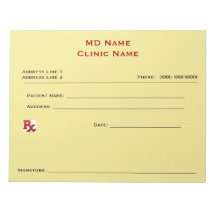
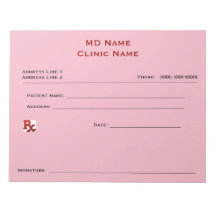

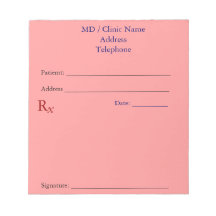
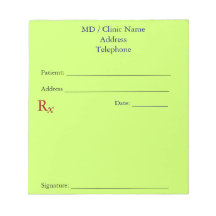
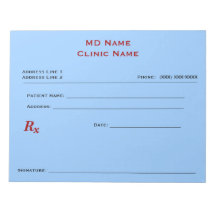
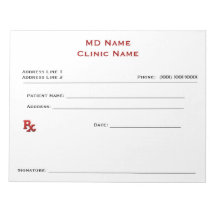
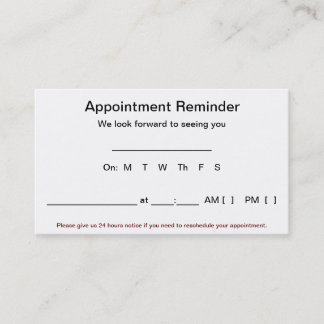
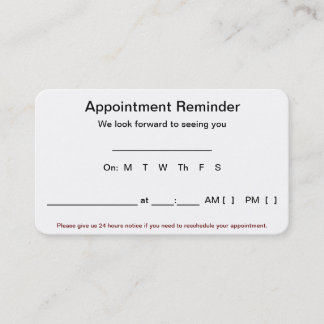
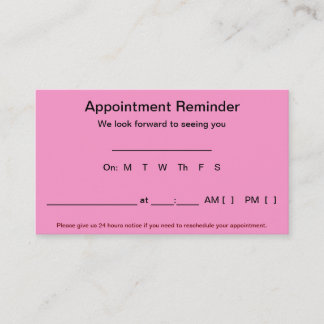
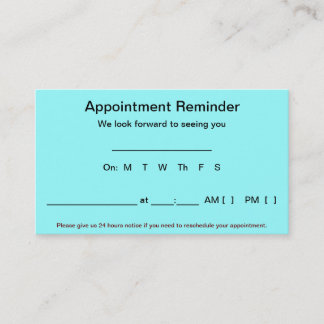
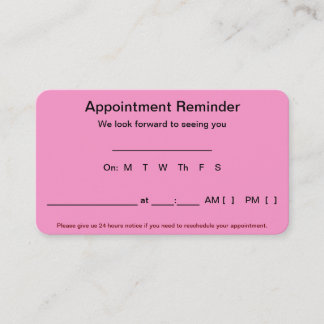
No comments:
Post a Comment